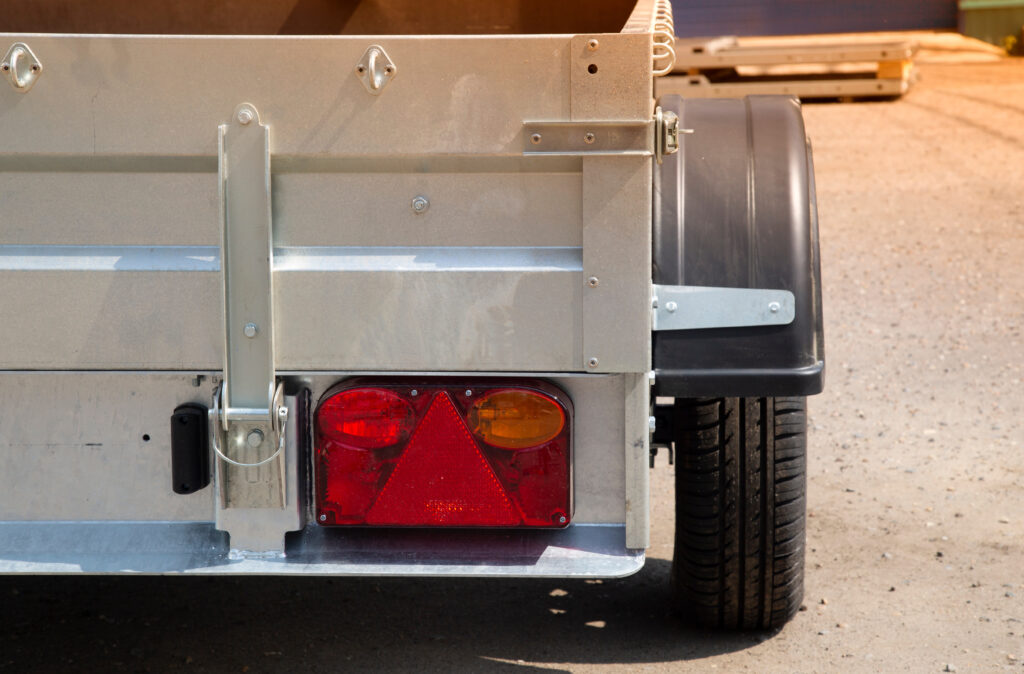When it comes to towing heavy loads, whether it’s a camper for a cross-country road trip or hauling equipment to a job site, safe towing on the road is important. That’s where mechanical trailer brakes come into play; these vital components play a crucial role in maintaining control and stability. In this comprehensive guide, we will delve into the question of ‘how do mechanical trailer brakes work’, their types, and their importance, providing you with all the information you need to become a towing pro.
Understanding Mechanical Trailer Brakes
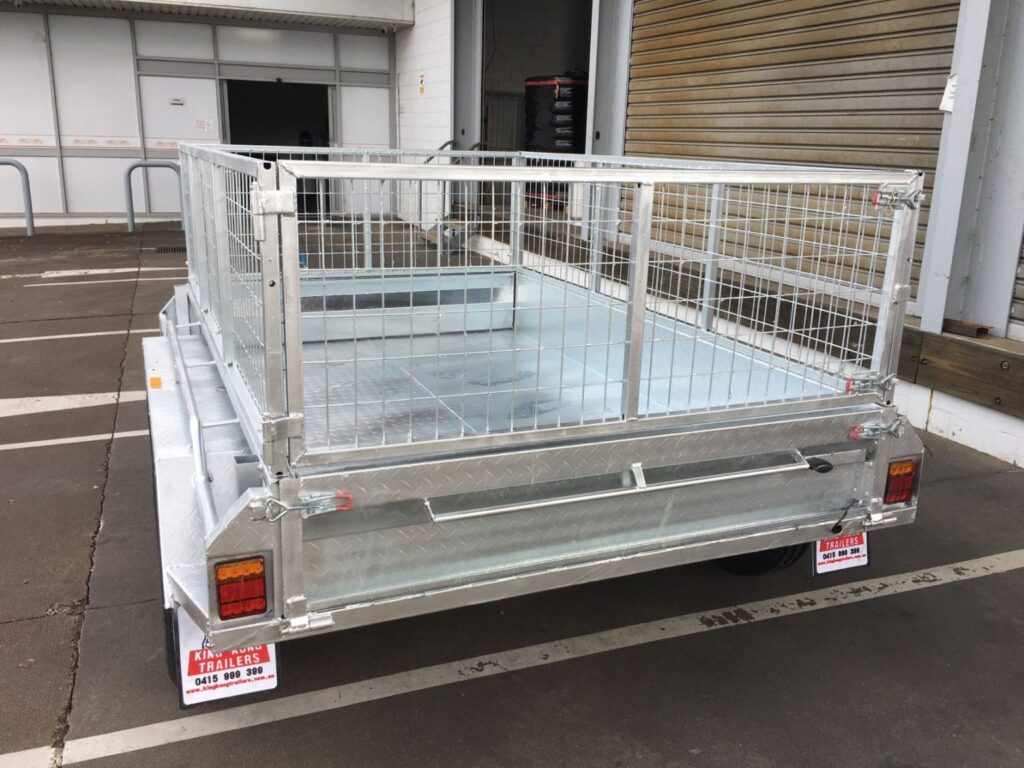
Mechanical brakes use physical mechanical components to activate their brakes
Let’s get the question of “how do mechanical trailer brakes work” out of the way. They, as the name suggests, use a mechanical system to activate the braking system. This mechanical system involves a direct physical connection between the towing vehicle and the trailer via cables and rods. These then transmit braking force from the towing vehicle to the trailer’s wheels, which activate the brake drums and brake shoes to allow the trailer to brake properly in unison with the towing vehicle.
This system is called overrun braking, because it activates when the trailer being towed continues moving forward as the tow vehicle brakes and wants to ‘overrun’ it. A brake actuator in the trailer coupling has a spring that compresses as the trailer pushes against it, and this controls how much braking is applied to the trailer. The more the spring is compressed, the harder the brakes are applied.
This is in contrast to how hydraulic or electric trailer brakes work which use fluid or electrical signals to brake the trailer. Whichever one you have, a mechanical, hydraulic or electrical braking system is great in any form as they stop your trailer from going too fast and limit the pressure on the tow vehicle brakes. It’s also important to note that brakes on your trailer are a legal requirement for trailers with a loaded weight rating of 751kg and above.
Key Components of Mechanical Trailer Brakes
Brake Actuator
At the heart of the mechanical trailer braking system is the brake actuator. This component is typically mounted on the towing vehicle’s hitch and is responsible for initiating the braking process. When the driver applies the brakes in the towing vehicle, the trailer begins an ‘overrun’ that pushes against the brake actuator. The spring in the brake actuator then activates the brakes when enough force is applied.
Cables and Linkages
The brake actuator is connected to the trailer’s brakes through a system of cables and linkages. As the brake actuator is engaged, these linkages and brake cables are pulled. And after being pulled, they transfer the force to the trailer’s braking assemblies, causing them to activate.
Brake Assemblies
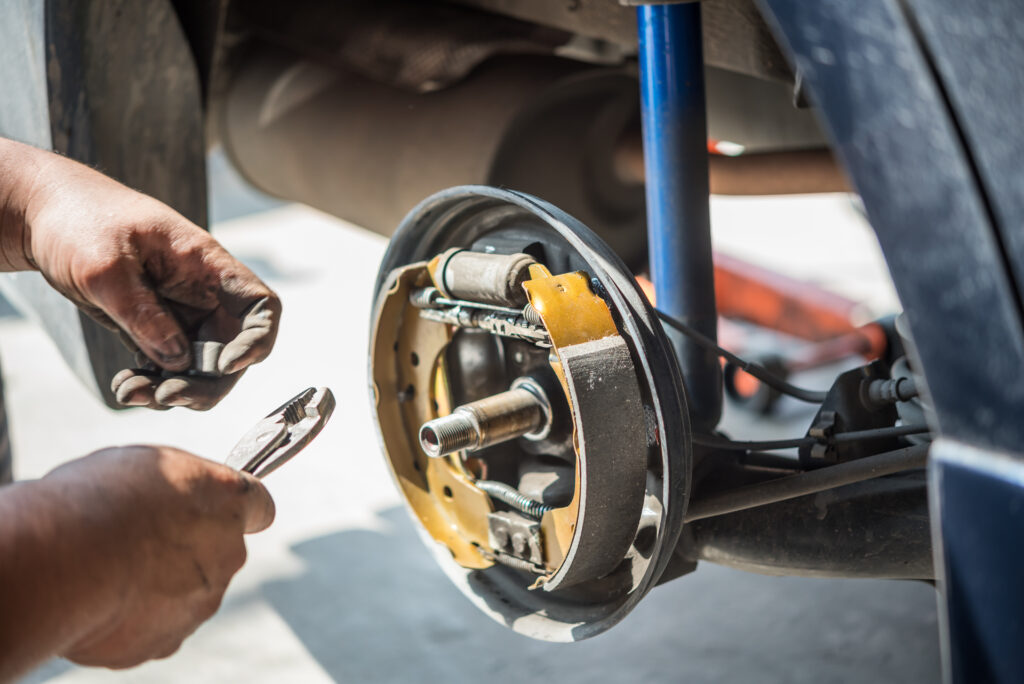
Most trailers have drum brakes, which are shaped like cylindrical drums
The brake assemblies consist of brake shoes or brake pads, which press against the trailer’s brake drums or rotors, generating friction and slowing down the trailer. This friction-based mechanism is what ultimately brings the trailer to a halt. Most trailers use brake drums, which are able to generate more friction and therefore more stopping power to better stop heavy loads. However, higher-quality trailers use disc brakes as they ventilate heat better and are safer for moving heavy loads over long distances and through more challenging conditions.
Types of Mechanical Trailer Brakes
Surge Brakes
Surge brakes, also known as surge actuators, operate based on the principle of hydraulic pressure. When the towing vehicle slows down, the trailer’s forward momentum causes a hydraulic surge, which in turn activates the trailer brakes. However, this type of brake system is popular for boat trailers and lighter loads.
Inertia Brakes
Inertia brakes, on the other hand, rely on the trailer’s inertia or momentum to activate the brakes. As the towing vehicle decelerates, the trailer’s inertia forces a sliding spring mechanism piece within the brake actuator to engage the trailer brakes. Inertia brakes are commonly used in trailers carrying heavier loads.
Why Mechanical Trailer Brakes Are Important
With the question of ‘how do mechanical trailer brakes work’ and the two main types explained, let’s go through why they’re important for you:
Control and Stability
Mechanical trailer brakes give you extra braking power to help stop your loaded trailer. This ensures better control and stability while braking, and especially when driving through steep descents or sharp turns.
Reduced Wear on Towing Vehicle

Your tow vehicle has an easier time towing a trailer with its own brakes
By sharing the braking load with the trailer, mechanical trailer brakes reduce the wear and tear on your towing vehicle’s braking system. And with reduced pressure. They also help to prevent them from fading or overheating.
Emergency Situations
Driving on public roads can be unpredictable, with situations that need hard braking to happen all the time. In these emergency situations, mechanical trailer brakes assist in stopping your tow vehicle and trailer faster. And this in turn reduces the risk of jackknifing or loss of control.
Tips for Maintaining Mechanical Trailer Brakes
Now that we know how mechanical trailer brakes work and why they’re important, let’s go through how to maintain them.
Regular Inspection
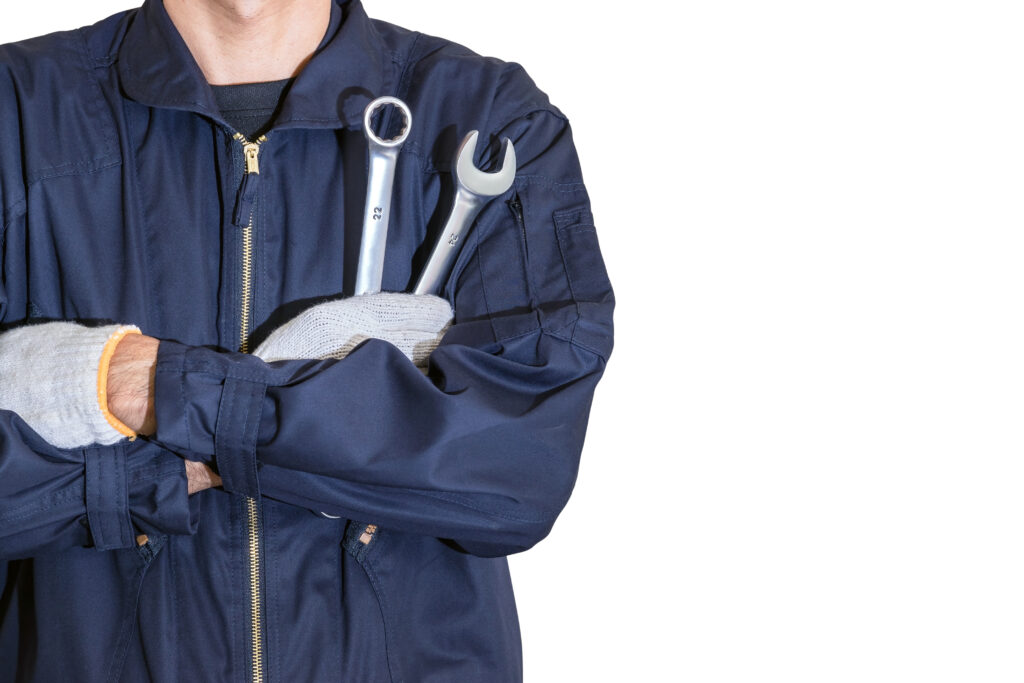
Like your car, trailers also need regular inspections
Here’s what to look for during your inspections:
- Brake Cables and Linkages: Check the brake cables and linkages for fraying, rust, or damage. Ensure that they are securely fastened and not overly stretched, as this can affect the brake’s responsiveness.
- Brake Assemblies: Examine the brake shoes or pads for even wear. Uneven wear patterns may indicate that the brake system is not functioning properly. Additionally, inspect the brake drums or rotors for signs of excessive heat or scoring.
- Mounting Hardware: Inspect the mounting hardware of the brake components. Tighten any loose bolts or nuts and replace any corroded or damaged hardware.
- Brake Actuator: Check the brake actuator for any leaks or damage. Make sure the actuator is engaging and disengaging smoothly when the towing vehicle’s brakes are applied and released.
Lubrication
Here’s how to maintain adequate lubrication:
- Cables and Linkages: Apply a high-quality lubricant to the pivot points and moving parts of the brake cables and linkages. This will reduce friction and allow for optimal movement.
- Brake Cam and Adjuster: Lubricate the brake cam and adjuster mechanisms to prevent them from seizing or binding. This will help maintain proper brake shoe alignment and ensure consistent braking force.
- Brake Pivot Points: Apply lubricant to the pivot points of the brake shoes or pads to ensure they can move freely within the brake assembly.
Get a Trailer With Mechanical Brakes Today!
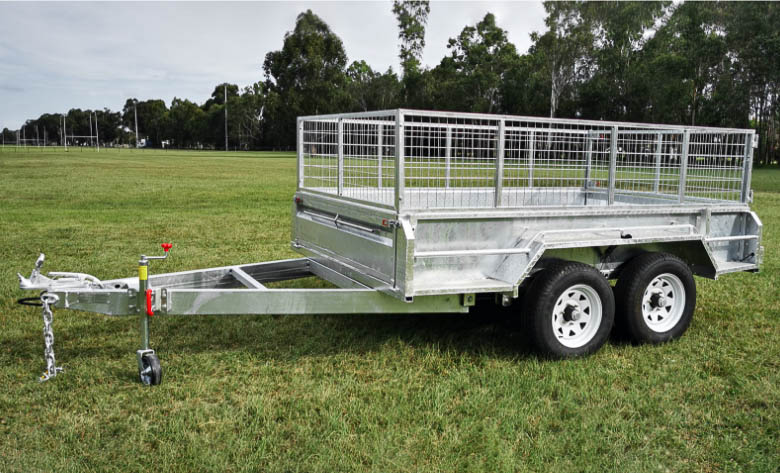
Trailers with mechanical brakes are a great piece of equipment to help you move heavy loads
Understanding how do mechanical brakes work is a question many people have asked, and one that doesn’t need a complicated answer. They work by using either a hydraulic or inertia system, where the momentum of the trailer activates a spring or hydraulic liquid to activate the brakes. Mechanical trailer brakes are important because they increase the safety of towing your trailer, and at King Kong Trailers, we have a wide range of trailers equipped with them. Head over to our website and browse our high-quality, galvanised steel trailers today!

